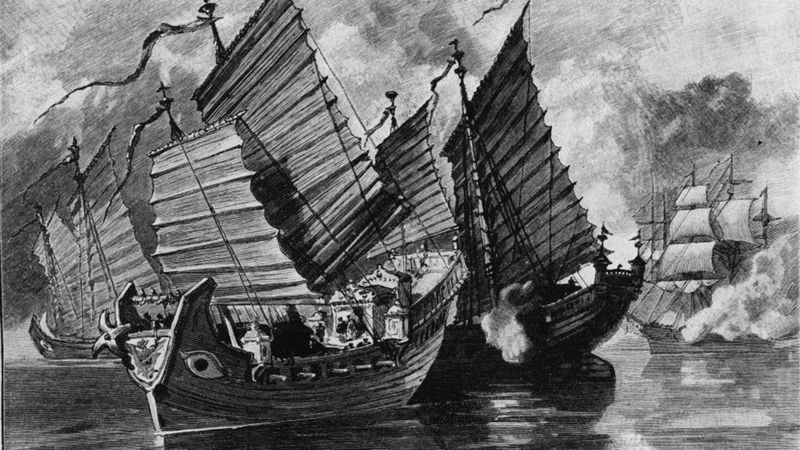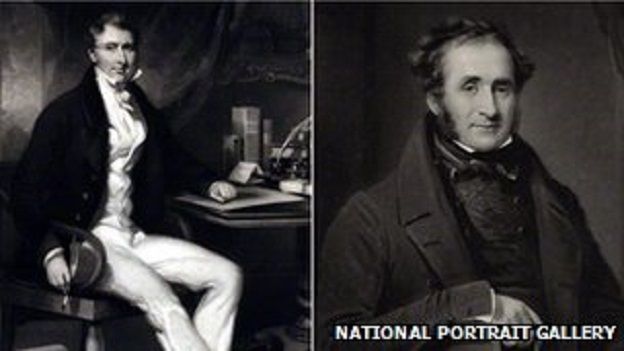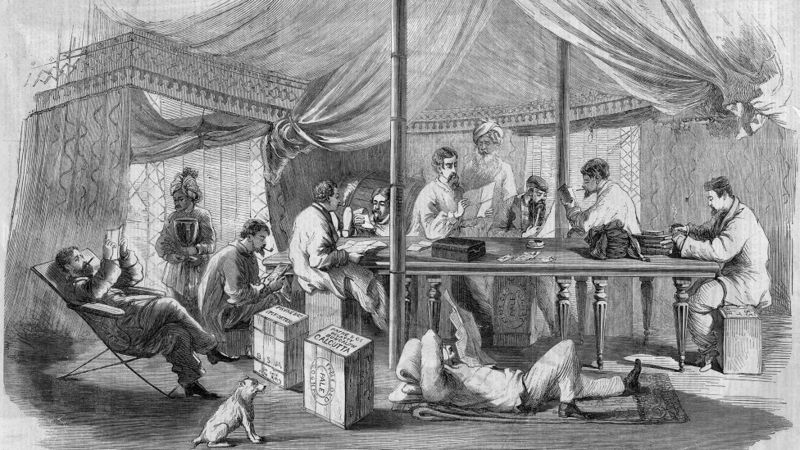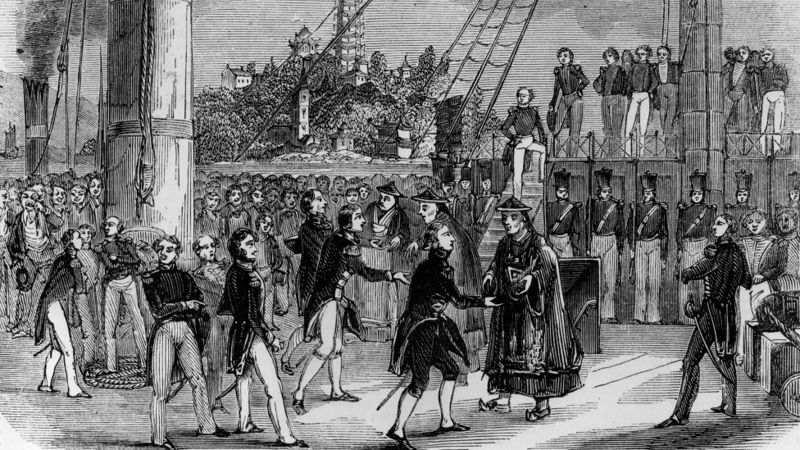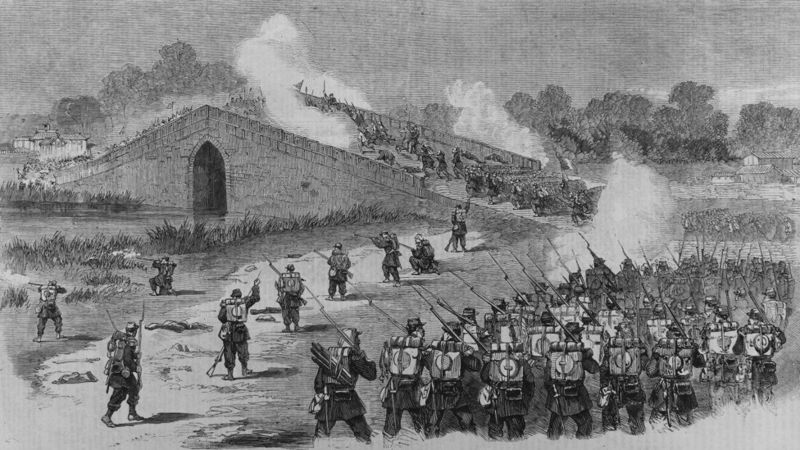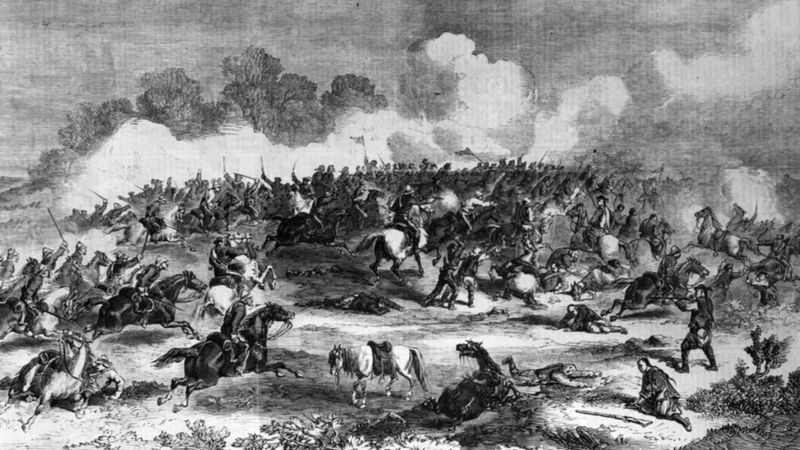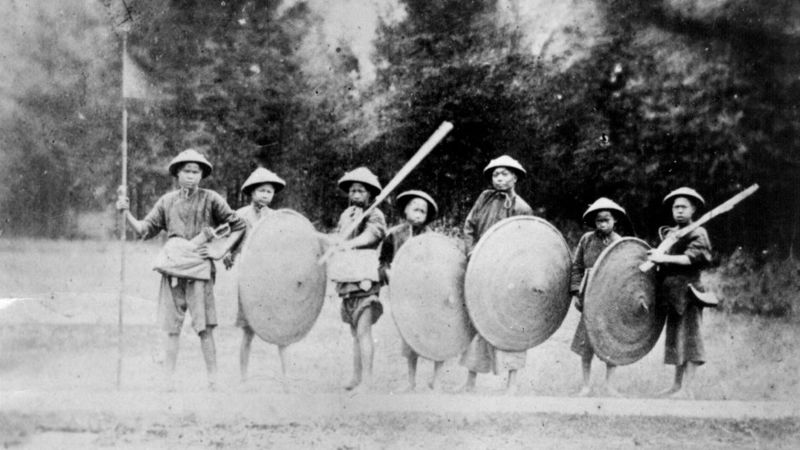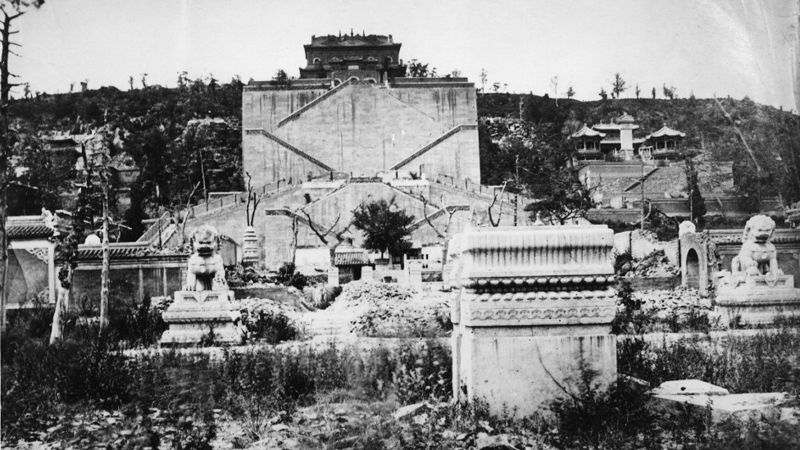It was in June 1840 when a fleet of British warships went to China's Pearl River Delta and started war. The security system of China's coastal areas was weak. China could not last long in front of this British attack and it knelt down.
This was the first Opium War in which thousands of people were killed and that too in the name of free trade. The opium trade in China was a profitable business but it was also illegal. Two Scottish men were involved in this business and both played a major role at the start of the war.William Jardine was a doctor by profession and also a businessman.Foreigners were allowed to do business only in this area of China. They used to trade opium instead of tea. There was a great craze for tea in Britain. By the end of the 18th century, Britain was importing 6 million pounds of tea from the canton every year.
Business in Silver :
But soon Britain started facing problems in this business because China's condition was that it would take only silver as the price of tea. Britain offered things like carved utensils, scientific instruments and woolen cloth as the price of the tea. But China refused to take it.
Qian Long, the then emperor of China, wrote in a letter to King George III, "We have all those things and are of better quality. I do not value such useless things and we have no use for things made in your country."
At least legally it was so. But British businessmen in India saw it as an opportunity. Opium was grown on a large scale in the Bengal region. Although opium was banned in China, opium has been used in Chinese medicine for thousands of years.
Ban in China :
But by the time of the fifteenth century, Chinese people started using it for intoxication by mixing it with tobacco. Soon a large section of Chinese society became addicted to opium and fell into its grip. Its social side effects also started coming to the fore. The victims of opium addiction started selling their valuables for it.
In 1729, Emperor Yongzheng of China completely banned the sale and sale of opium and its use as a drug. But after a hundred years had passed, the craze for opium of the Chinese had not diminished in the slightest and the British started exploiting their addiction.
Eastern Part of India :
By the year 1836, 30,000 boxes of opium started reaching China every year from India. Jardine, Matheson & Company held a quarter of this business. By breaking the government order banning opium in China, Britain had found a way to increase its income from China.
According to Professor Jan Carroll of the University of Hong Kong, "The British realized that opium is grown in the eastern region of India and that smuggling it into China can make a lot of profit." And this was made easy for Britain by the coastal position of Canton city of China.
China's action :
Professor Jan Carroll said, "They easily carried opium in small boats to the shores of the canton. There was always someone there to help them on the shore. From an economic point of view, it was making a lot of profit."
But breaking the law of Britain in this way did not remain hidden for long. In 1839, Emperor Daoguang of China declared war on drugs. An order was given to launch a raiding campaign against Western businessmen.
Following this seizure, Pershan left for London from William Jardine Canton, where he pleaded with the British Foreign Minister, Lord Palmerston, to retaliate against China. Opium played a major role in the British's revenue from India, so it did not take long for the British government to decide to send a navy to China.
China's Defeat :
In June 1840, Britain sent 16 warships and 27 ships to China's Pearl River Delta. There were 4000 people on these ships. The fleet also had the iron warship Nemesis, on which rocket launchers that could be fired up to two miles were stationed.
Although the Chinese were ready for this attack, they did not have the ability to counter the British power. His cannon could last only four to five hours in front of Britain. For the next two years, the British Navy started moving through the Chinese coast towards Shanghai.
Treaty of inequality :
Most of the Chinese soldiers were victims of opium addiction and were defeated everywhere. There were 20 to 25 thousand Chinese casualties in this war while Britain lost 69 soldiers. After this war, China was completely shaken. In August 1842, on HMS Cornwallis near Nanking, the British signed an agreement with the Chinese, which the world knows as the 'Equal Treaty' or 'Treaty of Equality'.
China had to open five ports to foreign trade and paid 201 million silver dollars to Britain as damages caused by the opium trade and the war. Britain got possession of Hong Kong from this treaty, which was to be used to increase the opium trade in China.

